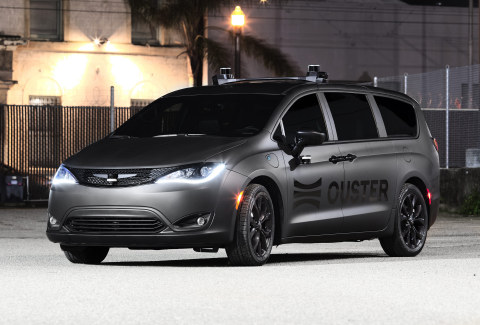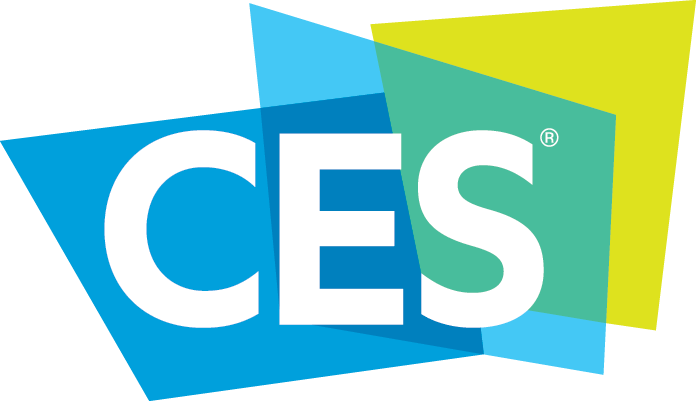The Consumer Electronics Show (CES) 2020 is taking place in Las Vegas on 7 – 10 January 2020. The announcements made by companies at the event have been mentioned below.
Innovusion to release a new lidar system more advanced than human sight, “Falcon”
Innovusion is a leader in the design and development of long-range image-grade LiDAR (Light Detection and Ranging) systems for vehicle safety applications. Following the success of its predecessors, “Cheetah” and “Jaguar,” Innovusion will be unveiling the most advanced LiDAR system “Falcon” at CES 2020, where perception software will have LiDAR systems that surpass the human eye.
Innovusion LiDAR systems are built by fusing together proprietary detector electronics, advanced optics, and sophisticated software algorithms and are designed from the ground up to meet the highly competitive pricing for automotive ADAS systems. With a vertical and horizontal resolution of 0.07 degrees at 10 frames per second and a field of view of 110 degrees x 30 degrees, Falcon will enable all vehicle makers to capture complex visuals at a greater distance and fulfill the demanding needs for perception software development that was not previously possible.
Echodyne introduces breakthrough imaging radar that brings cognitive sensing to AVs
Echodyne announces a breakthrough imaging radar for autonomous vehicles. EchoDrive is built on proven MESA technology and offers a new type of sensor functionality that significantly enhances machine perception. Echodyne will be holding private meetings to introduce EchoDrive to the AV industry in Las Vegas during the 2020 Consumer Electronics Show (CES).
EchoDrive delivers unprecedented real-time control over the radar’s interrogation of the drive scene, enabling a richer form of machine perception. The radar’s dynamic control API leverages knowledge in the AV stack, such as HD maps, V2X, and other sensor data, to optimize measurement moment by moment through ever-changing environments, conditions, and scenarios. For example, EchoDrive can smoothly transition from normal drive scene to work zone heightened awareness, increase frame rate to secure an unprotected left turn, or zoom in on a tunnel approach. This dynamic tasking of a high-performance analog beam-steering radar significantly enhances safety by elevating the cognitive functions of artificial intelligence and machine learning (AI/ML) in the AV stack.
Hexagon Introduces Smart Autonomous Mobility Solutions Portfolio at CES 2020
Hexagon AB introduced its Smart Autonomous Mobility solutions portfolio today at CES 2020, bringing together all the necessary sensors, software and services to make autonomous driving possible.
Hexagon is on a mission to enable all customers to accelerate and deploy a bold autonomous mobility vision – from research and development to advanced machine learning and simulation, to full integration and production into industry ecosystems.
Veoneer presents innovative DMS technology from Seeing Machines
Seeing Machines’ industry-leading AI-powered DMS technology for driver monitoring will be featured at CES 2020.
Veoneer will present its vision of how daily mobility will change in the future. On display are new driver assistance systems and solutions for collaborative and autonomous driving, which are expected to prevail in the coming years. Veoneer will also unveil a new product on the streets of Las Vegas that will allow drivers to take their hands off the wheel while driving at the push of a button while the vehicle safely handles the daily commute.
Baraja Unveils Next Generation LiDAR Sensing Platform With Interference Immunity
At CES 2020, Baraja, developer of Spectrum-Scan™ LiDAR, is unveiling its next-generation sensing platform with inherent interference immunity. Baraja LiDAR is the only system available today using randomly modulated continuous wave, technology that completely blocks interference from other LiDARs and environmental light sources.

Ouster, a provider of high-resolution lidar sensors for autonomous vehicles, robotics, security, and mapping, introduced two new high-resolution digital lidar sensors, the ultra-wide field of view OS0-128 and the long-range OS2-128. The OS0 marks a new category of ultra-wide field-of-view lidar optimized for autonomous vehicle and robotics applications. The CES Innovation Award Honoree OS2-128 combines industry-leading resolution and 240+ meter range for high-speed driving applications. Both sensors will be on display at CES 2020 and are currently shipping to customers.
DeepRoute Debuts Innovative Autonomous Vehicle Technology
DeepRoute, an international self-driving startup and CES 2020 Innovation Award Honoree announced it will be debuting three innovative technologies at CES 2020 including a vehicle-grade computing platform solution, DeepRoute-Tite, High Dynamic Range camera and ADS Synchronization Controller.
Cepton to Showcase Award-Winning Lidar Solutions and Multimarket Collaborations
Cepton Technologies, a CES 2020 Innovation Awards Honoree, will be exhibiting at CES 2020 to demonstrate its state-of-the-art lidar solutions that are enabling advanced autonomy, safety and intelligent perception across a range of markets. During this event, Cepton will showcase its popular Vista and Sora lidar sensors as well as the groundbreaking Helius™ Smart Lidar system, which has won the CES 2020 Innovation Awards in two categories: “Smart Cities” and “Tech for a Better World”.
Aptiv Unveils Smart Vehicle Architecture at CES 2020
Aptiv unveiled a modern, sustainable vehicle architecture that enables automakers to improve safety, increase vehicle efficiency, and deliver the intelligently connected, software-defined experiences consumers want.
Aptiv’s Smart Vehicle Architecture (SVA) debuts at the Consumer Electronics Show 2020 as today’s vehicle architectures have reached an impasse and are no longer able to handle the rapidly increasing software and hardware complexity of feature-rich and highly automated vehicles. At the same time, OEMs are making unprecedented investments in electrification, which SVA is ideally suited to support. The intersection of these trends – exponential increases in software-enabled functionality, vehicle electrification, and intelligent connectivity – will have a profound impact on the future of mobility and society.
Evolutions in Imaging and Sensing Technologies in the Realm of Mobility
“Safety Cocoon” represents a safe-zone concept in which supports vehicle safety in various daily driving situations by detecting 360 degrees around the vehicle, enabling early preparation to help evade risk. At the Sony booth, visitors can experience advancements in the Sony imaging and sensing technologies listed below, which support the realization of this concept. Through Sony’s imaging and sensing technologies, which are beyond the human eye, we aim to contribute to the achievement of safe, reliable, and comfortable mobility experiences.
- CMOS image sensors which achieve high sensitivity, high definition and high dynamic range while also suppressing LED flicker*3 to deliver accurate object recognition, even in situations where conventionally detection has been difficult.
- Solid State LiDAR which uses highly accurate distance measurement to gain a precise 3D grasp of real-life spaces.
- Sensor fusion technology which merges the capabilities of sensors of varied attributes to enable early and accurate recognition, even in challenging conditions such as fog, backlight and night-time driving.
- Time-of-Flight (ToF) in-cabin sensing solutions use distance measurement technology to detect and recognize people and objects inside the car. This information is used to provide an optimized infotainment system with intuitive interfaces such as gesture control and improve safety and comfort inside the vehicle.
New Mobility Proposals Pursuing Comfort and Entertainment
Sony’s efforts in the area of mobility – such as pursuing safety, reliability, comfort and entertainment – are being positioned as a new initiative, named “VISION-S.” The first prototype vehicle to result from “VISION-S” will be showcased at the Sony booth. This prototype incorporates Sony’s imaging and sensing technologies, as well as on-board software regulated using Sony’s AI, telecommunication and cloud technologies, in order to continuously update and evolve its features.
A total of 33 sensors including CMOS image sensors and ToF sensors are embedded within the vehicle, in order to detect and recognize people and objects inside and outside the car, and provide highly advanced driving support. Sony’s “360 Reality Audio” provides a deep and immersive audio experience through speakers built into each seat to encapsulate passengers in sound. The front seats face a panoramic screen on which rich and diverse content can be enjoyed through an intuitive user interface. Sony will continue to combine its advanced technologies to deliver greater safety and reliability, while also striving to inspire new emotion through revolutionary in-car entertainment experiences.
European OEM to showcase Seeing Machines DMS Tech
Seeing Machines, an industry leader in AI-powered driver monitoring system (DMS) technology, has collaborated with BMW Group to integrate its FOVIO driver monitoring technology into the BMW i Interaction EASE. This integration will be featured at CES 2020.
The BMW i Interaction EASE leverages Seeing Machines’ technology as a component of their innovative HMI (Human-Machine Interface) concept, visualized through a windshield projected Head-up Display (HUD).
Carnavicom Introduces Its Advanced 16-Channel LiDAR Sensor
Carnavicom, a South Korean automotive supplier producing an array of Advanced Driver Assistance Systems (ADAS) components used in automotive markets, will be showcasing its latest development of LiDAR sensors.
Carnavicom’s new LiDAR scanning sensors have achieved an average of a 26% decrease in costs thanks to local procurement of parts and key components such as brushless direct current motor (BLDC), laser diode (LD) and avalanche photodiode (APD). Such efforts have enabled LiDAR sensors to be more affordable to integrate into other LiDAR products and applications.
Velodyne Lidar Introduces Velabit
Velodyne Lidar introduced Velabit, Velodyne’s smallest sensor which brings new levels of versatility and affordability to 3D lidar perception, at CES 2020. The Velabit leverages Velodyne’s innovative lidar technology and manufacturing partnerships for cost optimization and high-volume production. The sensor advances Velodyne’s mission to make high-quality 3D lidar sensors readily accessible to everyone.
The Velabit perfectly complements Velodyne’s sensor portfolio. The sensor delivers the same technology and performance found on Velodyne’s full suite of state-of-the-art sensors and will be the catalyst for creating endless possibilities for new applications in a variety of industries. The compact Velabit can be embedded almost anywhere within vehicles, robots, unmanned aerial vehicles (UAVs), infrastructure and more. It is designed to be easy to manufacture at mass production levels.
Momenta, together with Texas Instruments (TI) unveiled the latest front camera perception product deployed on TI’s latest Jacinto TDA4x SoC (System on Chip) at the 54th International Consumer Electronics Show (CES 2020), which can help automakers meet the safety requirements for new cars, including Euro NCAP 2022/2024.
Momenta is developing a new generation of ADAS solutions based on TI Jacinto TDA4x SoCs to meet the ever-increasing consumer demands for driving comfort and safety. Momenta’s industry-leading front camera perception and high precision localization algorithms, combined with TI’s Jacinto TDA4x processor for ADAS applications, and wide-FOV high-resolution camera, provides effective object detection at long distance and in complex scenarios.
Wind River Collaborates with Baidu on Autonomous Driving Platform
Wind River, a leader in delivering software for the intelligent edge, announced its collaboration with Baidu to develop an autonomous vehicle solution. A joint proof of concept has been developed to include an AUTOSAR Adaptive–based software architecture with Baidu’s Apollo autonomous driving open platform, designed to meet the specific challenges of the next generation of software-defined automobiles.
Baidu is the world’s largest Chinese language Internet search engine, an integrated Internet information service company, and a world-leading artificial intelligence (AI) platform company. Baidu’s Apollo program aims to provide an open, reliable, and secure software platform for its ecosystem partners to develop their own autonomous driving systems.












